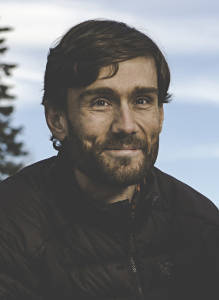Clients of all ages often infer that substance experimentation is a normal developmental process. Or that genetics predispose a person to addiction. The desire for social connection and the natural process of curiosity are certainly common influences, as are family history and genetics. But considering the many factors involved in early substance use, how can we as parents, teachers, and community members make a difference? My response to this question is “education and social connection.”
Researcher Gabor Maté suggests that the three environmental conditions essential to child brain development are nutrition, physical security and consistent emotional human interaction. Abraham Maslow proposes that these are critical needs in the hierarchy of healthy development. But in our modern culture, supportive and undistracted face-to-face emotional interaction, what Maté calls “emotional nurturing,” is most likely to be disrupted. He notes that children need to experience “attachment relationships,” and that a child’s brain cannot develop optimally without healthy human connection. Another researcher, Daniel Siegel, suggests that human connections create “neuronal connections,” the same connections involved in the neurological processes of addiction.
The well-known Adverse Childhood Experiences (ACE) study looked at 10 categories of environmental circumstances. In this study, a correlation was made between these circumstances and early substance use. It found that for each adverse childhood experience, the risk for the early initiation of substance experimentation increased four times. The study showed that adverse experiences such as abuse or neglect are common. But these specific examples of trauma were not the only indicators of an adverse experience. Emotional isolation causes the same vulnerability to substances. They all result in a disruption of brain development and represent a common adversity: lack of emotional nurturing. A child’s emotional environment influences their vulnerability to addiction.
The good news is that preventative resiliencies are cultivated by meaningful human connections, and we can provide the emotional nurturing our children need. Additionally, we impart other important resiliencies with healthy modeling, open and honest communication, and education. There are many ways to participate in the prevention and mitigation of childhood substance use. Indeed, these meaningful efforts are therapeutic at all ages. The socio-emotional maturation process continues into adulthood and the consequence of consistent emotional human interaction is always central to a person’s well-being.
A group of local professionals has been collaborating to provide Substance Misuse Prevention lessons for students in the Health classes at Homer Middle School. We have been talking openly about their experiences, responding to their questions, and exploring their concerns. On April 26 at 6pm at Homer High School, the group will be facilitating an Adult Talks event for parents and community members on the subject of childhood substance misuse. Join us as we discuss what we’ve been teaching and, just as importantly, learning from students.
Tim Robinson is owner and a mental health therapist at Kachemak Counseling Clinic in Homer. He provides adolescent, adult, and couples counseling services. www.kachemakcounseling.com


